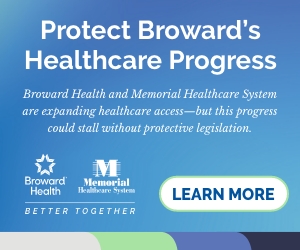- Florida has passed 4,000 registered overdose deaths in 2022, continuing the rising trajectory of more drug-related deaths statewide
- In response, a group of state leaders and agencies have launched a range of initiatives aimed at combating the entry of opioids into the state, as well as taking steps to improve treatment accessibility
- Fentanyl-related deaths have increased 790 percent since 2015, according to state data
According to the Department of Health, Florida has surpassed 4,000 reported fatal overdose cases this year, with the actual number likely much higher, as counties statewide continue to struggle with the introduction of counterfeit opioids.
In response, a range of state agencies has introduced initiatives to suppress the introduction of opioids into the state and make medical response access more accessible. Fentanyl in particular has raised concerns over the trajectory of the state’s overall illicit drug use and the dangers it may pose.
Attorney General Ashley Moody last month led a national consortium of bipartisan Attorneys General, who collectively wrote to President Joe Biden to request a declaration of fentanyl as a weapon of mass destruction.
In the letter, the AGs declare that fentanyl is compounding the national mortality toll, which has climbed dramatically in recent years. The illicit substances were found to have been mostly manufactured in Mexico and trafficked across the border to hub cities like Atlanta before making their way to smaller cities and towns across the country.
Should the substance be deemed as such, it would require federal departments like the Department of Homeland Security, Justice Department, and Pentagon to work in tandem to combat the opioid crisis, presumptuously expediting the already existing response efforts.
“Currently, fentanyl is exacerbating the death toll increasing exponentially every year for the last several years. The purpose of this letter is to propose an unorthodox solution that may help abate or at least slow the crisis’s trajectory while also protecting Americans from a mass casualty event from fentanyl,” Moody’s letter reads.
In July, Florida Department of Law Enforcement Commissioner Mark Glass stated that 30 percent of drugs going through state lab testing protocols return counterfeit. The artificial manufacturing of the drug makes it difficult for users to accurately measure correct dosages, leading to the surge in overdoses seen in recent months.
Counterfeit fentanyl is especially dangerous because users may be unaware that they are taking the hazardous drugs, as it’s routinely blended with other drugs. Synthetic opioid is approximately 50-100 times more potent than morphine, according to state leaders.
Further, illicit fentanyl toxicity was the leading cause of mortality for American individuals between the ages of 18 and 45 in 2018, according to a review of CDC data published in December 2021.
“It is so vital for individuals contending with a substance use disorder to have access to the right array of services that will work for their individual needs,” said Secretary of the Department of Children and Families Shevaun Harris. “When agencies, stakeholders, and partners alike come together to bolster our state’s system of care, we can ensure that Floridians have access to comprehensive services when they need it most.”
Additionally, the Florida Department of Health in September announced an action plan to ensure readily available access to naloxone, commonly known by its brand name Narcan. Naloxone is an overdose response medication that could reduce thousands of substance abuse deaths across the state through county health departments.
In its introductory phase, 16 county health departments received 1,500 naloxone kits. A secondary phase plans to expand naloxone distribution to all 67 county health departments in Florida.
Gov. Ron DeSantis in August announced the expansion of a new, piloted substance abuse and recovery network to disrupt the opioid epidemic.
The network of addiction care – Coordinated Opioid Recovery (CORE) – is the first of its kind in the nation, coordinated through the Department of Health, the Department of Children and Families, and the Agency for Health Care Administration.
Its comprehensive approach utilizes community-based resources to treat the primary and secondary impacts of a substance use disorder, including care and peer navigators directly within an Emergency Department and sustainable overall health care.
Under the program, if an overdose is reported, CORE alerts an emergency response team to transport the individual to a special subject matter hospital. Following stabilization, medication-assisted therapy will occur before the patient is transferred to a multi-specialty medical group for long-term care.
More recently, Moody helped launch a new opioid addiction prevention platform, ATLAS, that can help provide individuals with cost-effective treatment options.
The new platform aims to help people in overcoming addiction and search for licensed treatment facilities throughout Florida based on location, use of best practices, types of treatment offered, and accepted insurers.
“[I’m] excited to help launch ATLAS—an innovative program that helps those struggling with opioid addiction find affordable, high-quality treatment near them,” said Moody.” ATLAS will be funded, in part, through funds, we secured fighting the national opioid crisis.”
Shatterproof, a nonprofit organization dedicated to ending the statewide addiction crisis, launched ATLAS in Florida in collaboration with Florida Blue and New Directions Behavioral Health, a leading coordinated behavioral healthcare organization.
Fentanyl-related deaths have increased 790 percent since 2015, according to state data.




